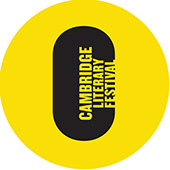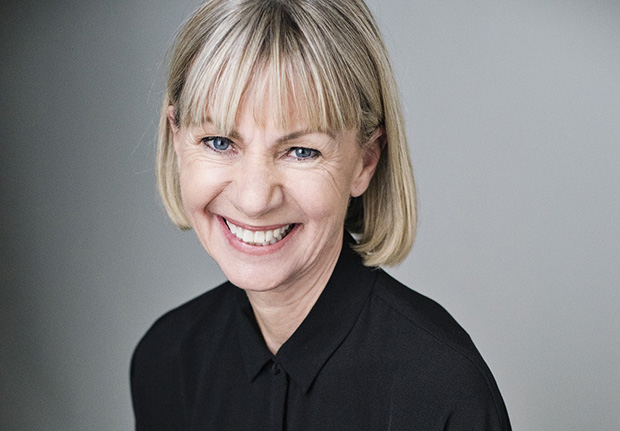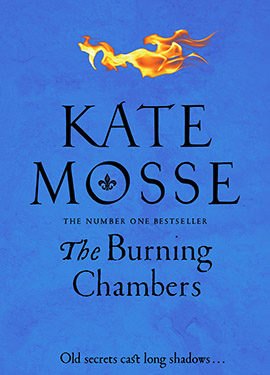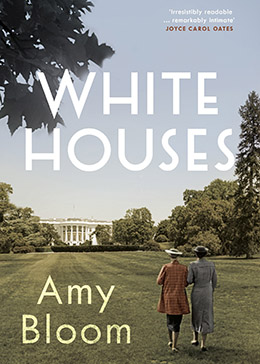Bringing you top new fiction picks, author interviews, discounts and lots more book chat, the Edition Book Club is a partnership with Cambridge Literary Festival and Heffers
Book 1: The Burning Chambers by Kate Mosse
The first selection for our book club is by author and co-founder of the Women’s Prize for Fiction, Kate Mosse. Charlotte Griffiths finds out more

Kate Mosse, the much-loved author and co-founder of the Women’s Prize for Fiction, is earning rave reviews for her latest book, The Burning Chambers, which landed on shelves recently.
Many critics are drawing parallels between The Burning Chambers and Kate’s 2005 bestseller Labyrinth – and, rather excitingly for those of us who adored this earlier novel, Kate (below) does the same herself. “If you loved Labyrinth, I hope – fingers crossed – you’ll love this,” she explains.
“They are totally different stories, totally different periods of history, but the spirit of the two books is the same. And I feel about this book like I felt about Labyrinth. Not that I don’t love all my other books!” she quickly adds, laughing. “But this feels like… yes.”

As a writer of historical fiction, Kate’s keen to point out she is not a historian. “I’m a reader of history – and I do think that with everything we see in the modern day, there’s a lesson from history that we could have learned.
“Sometimes it’s very complicated to analyse what one is feeling, or what one can actually do about the contemporary world, and the way things seem to be changing very fast, in ways that many people are very unhappy with – but you can deal with a lot of the same emotions and, indeed, the same issues – by looking to the past. And that’s what I try to do: I write imagined characters, and an imaginary story, against a backdrop of real history.”
In the case of The Burning Chambers and the two books due to follow it, the backdrop spans 300 years, following the Huguenot diaspora around the world. “It’s a refugee story, really,” she explains, “about people who – for no fault of their own – are forced apart from their neighbours, told that people who they had loved all their lives are now the enemy – and having to leave the places where their families have lived for generations, and find a home in another part of the world, where often people don’t want you. And that’s the Huguenot story.”
When Kate started researching The Burning Chambers several years ago, she didn’t imagine that there’d be such strong echoes in the modern world. “It’s utterly set in the 15th and 16th century – historical fiction must only be about the time in which it’s written – but the echoes, obviously, go out.”

Like all of Kate’s books, the original idea came from the landscape: in this case, as with Labyrinth, the Languedoc region of France. “That’s where it always starts for me – the place,” she says, “and then the stories and the history of that place – and then I think: ‘Oh – I could write a story about this…’ And here come my characters to tell that story. It’s about having the confidence as a writer to let the characters take the story forward, and therefore it doesn’t always go in the direction you’re expecting. That’s what’s so exciting!”
For Kate, getting that first draft of her story down is no mean feat. “When I’m writing, I write. I get up about four in the morning, I work for eight, or nine, or ten hours a day, and then I go to sleep. And I write seven days a week: Christmas, birthdays, raining, whatever – until a first draft is done – and then the editing is about ‘that doesn’t work; or that’s not true to history’. As I said, I’m not a historian, but I do work very hard on research. You always worry you’ll make a few clangers, and I probably do, but I’m a storyteller, writing against the backdrop of history.
“So I do all my research, and then when I do that first draft, it’s like a sprint – even though they’re big books – I just need to get it all out of my head, and then I’ve got something to wrestle with.”
Kate co-founded the Women’s Prize for Fiction, and still firmly feels that it has a place in today’s society. “Celebrating the best always has a place. It’s about honouring women’s voices, as well as men’s voices – it’s about celebrating excellence and putting brilliant stories from women into the hands of men and women who will love them.
“It’s very interesting that every prize has eligibility criteria, and there’s no other prize that’s always asked to justify its existence – which kind of shows that there is still a great deal of disquiet about how far things have come, and how far they need to go. For me, it’s about celebrating and saying, ‘Try this! It’s fantastic!’ rather than complaint. I’m a great believer in – if you don’t like a book, put it down, hand it on to your mother or sister or brother or friend, and try another book. Just try. There’s a lot of great writing out there.”
“If you love Labyrinth, I hope – fingers crossed – you’ll love this”
Though her life is spent surrounded by books and the excitement of new authors, the classics still have a place on Kate’s shelves. “At the moment I’m not reading very much because I’m writing,” she says. “I cannot go to sleep unless I read, but I can’t read anything that might influence or distort the voices in my own head – so the only thing I can read is Agatha Christie. I read, and reread, and reread Agatha Christie, over and over again.”
But she does read every day – something which would have made Mosse’s younger self extremely happy. “For me, when I was growing up and trying to decide what I might do as a career, the only thing I really wanted to do was to be a reader. And in a funny sort of way, I’ve managed to do that – just be around books all the time,” she laughs. “My ten-year old self wouldn’t have believed it was possible.”
Book Club questions
If you’re planning on gathering friends to read The Burning Chambers, and then chatting through your thoughts on the book, we’ve asked Kate Mosse for some discussion questions to guide you.
The Burning Chambers is set very definitely ‘then’, but it seems about ‘now’ – what’s your take on this?
Why do you think people enjoy reading historical fiction? Is it to do with wanting to shine a mirror on current events?
Do you enjoy the descriptions of the landscape? Does it make you want to go to Carcassonne, or Toulouse, or South Africa – or does that feel like a backdrop?
Think about the balance between research and storytelling. Do you know anything about the Wars of Religion? If not – did that matter? Do you now feel you’d like to know more about this period of history?
Kate Mosse writes tales of ordinary people in extraordinary circumstances. Does the book make you think about what you might do, if faced with similar straits? “If your neighbour is your friend, and has always been your friend – but then you’re suddenly told that now, overnight, they’re your enemy – what do you do?” Kate asks. “How far would you go to protect your family? What would you do to look after other people’s families?”
Cathy Moore, director of Cambridge Literary Festival, on The Burning Chambers
Kate Mosse knows how to craft a story, and if you have read her bestselling Languedoc Trilogy you can’t help but be excited by The Burning Chambers – the first book in her new epic historical fiction series. The book opens in Carcassonne in the winter of 1562, when 19-year old Minou Joubert receives an anonymous letter at her father’s bookshop consisting of just five words “She knows that you live”. At the same time her father has not been himself and she suspects that both things are connected.
What follows is a fast-paced tale fusing gothic adventure, love, war and betrayal which put me in mind of two brilliant and gripping reads, The Shadow of the Wind (Carlos Ruiz Zafon) and All the Light We Cannot See (Anthony Doerr). Much like her earlier books the research that has gone into The Burning Chambers sings out on every page, from the perfectly carved- out characters to the atmospheric backdrop of a city on the brink of destruction. These universal themes of religious war and displacement give the book an eerie contemporary relevance.”
Up next month: White Houses by Amy Bloom

Our chosen book for July’s Edition Book Club is White Houses, the story of the passionate, hidden love affair between Eleanor Roosevelt and Lorena Hickok. A superb novel about love, friendship and power, set against the atmospheric backdrop of the White House during the Second World War, it’s written with insight and panache: historical fiction at its best.
The author is Amy Bloom, the acclaimed writer of three other novels, Lucky Us, Away and Love Invents Us. White Houses can be purchased for £12.99 in hardback. Read along and tweet us your thoughts @cambsedition, with the hashtag #EditionBookClub for a chance to feature in the next issue.
Join the conversation: share your thoughts on The Burning Chambers by tweeting us @cambsedition and hashtag #editionbookclub
IN ASSOCIATION WITH

GET 25{b486c5a37ab2d325d17e17d701cb2567b1ecd1814e8ceb33effa2a4f1f171d46} OFF CAMBRIDGE EDITION BOOK CLUB BOOKS AT HEFFERS BOOK SHOP ON TRINITY STREET

